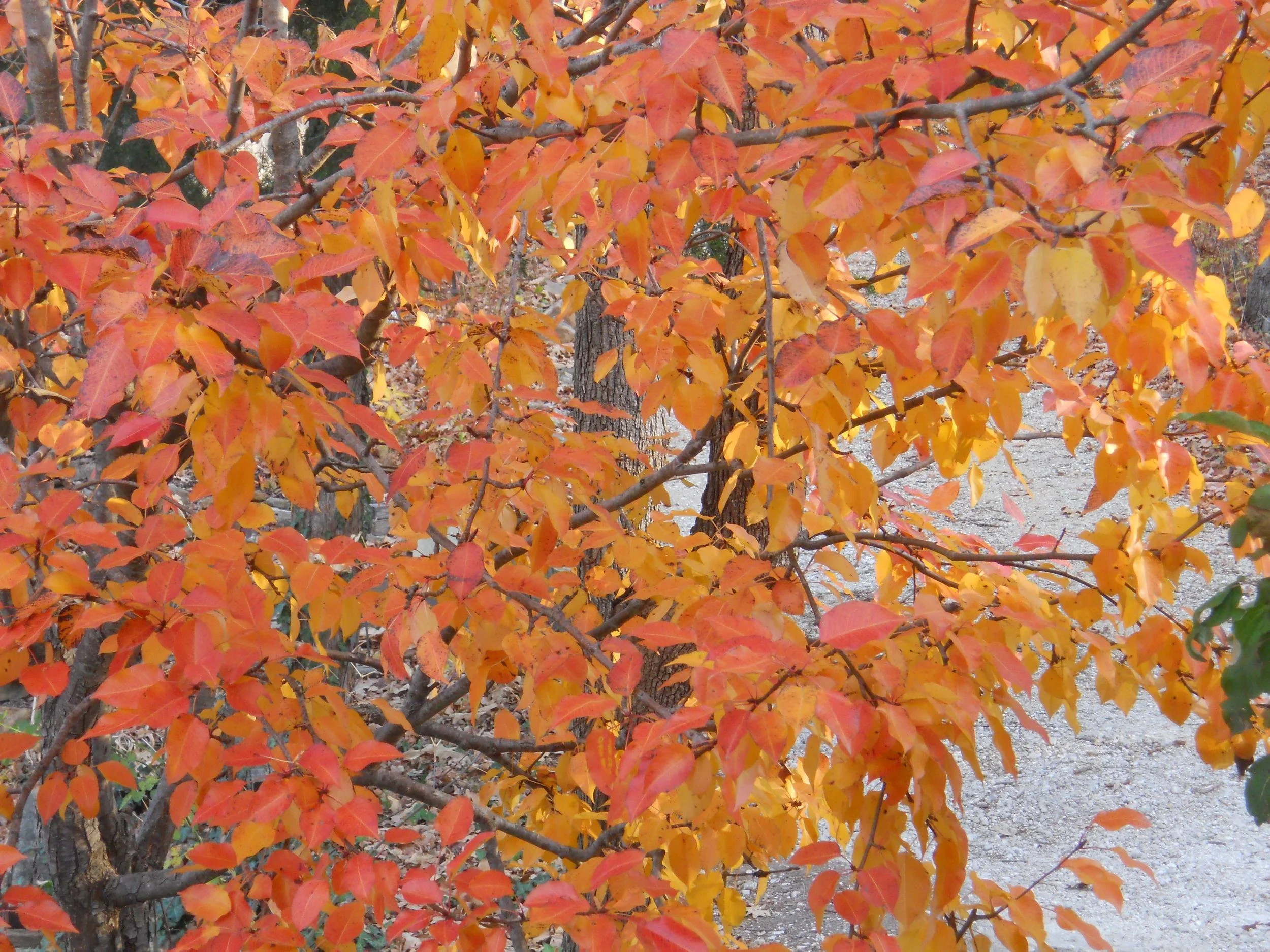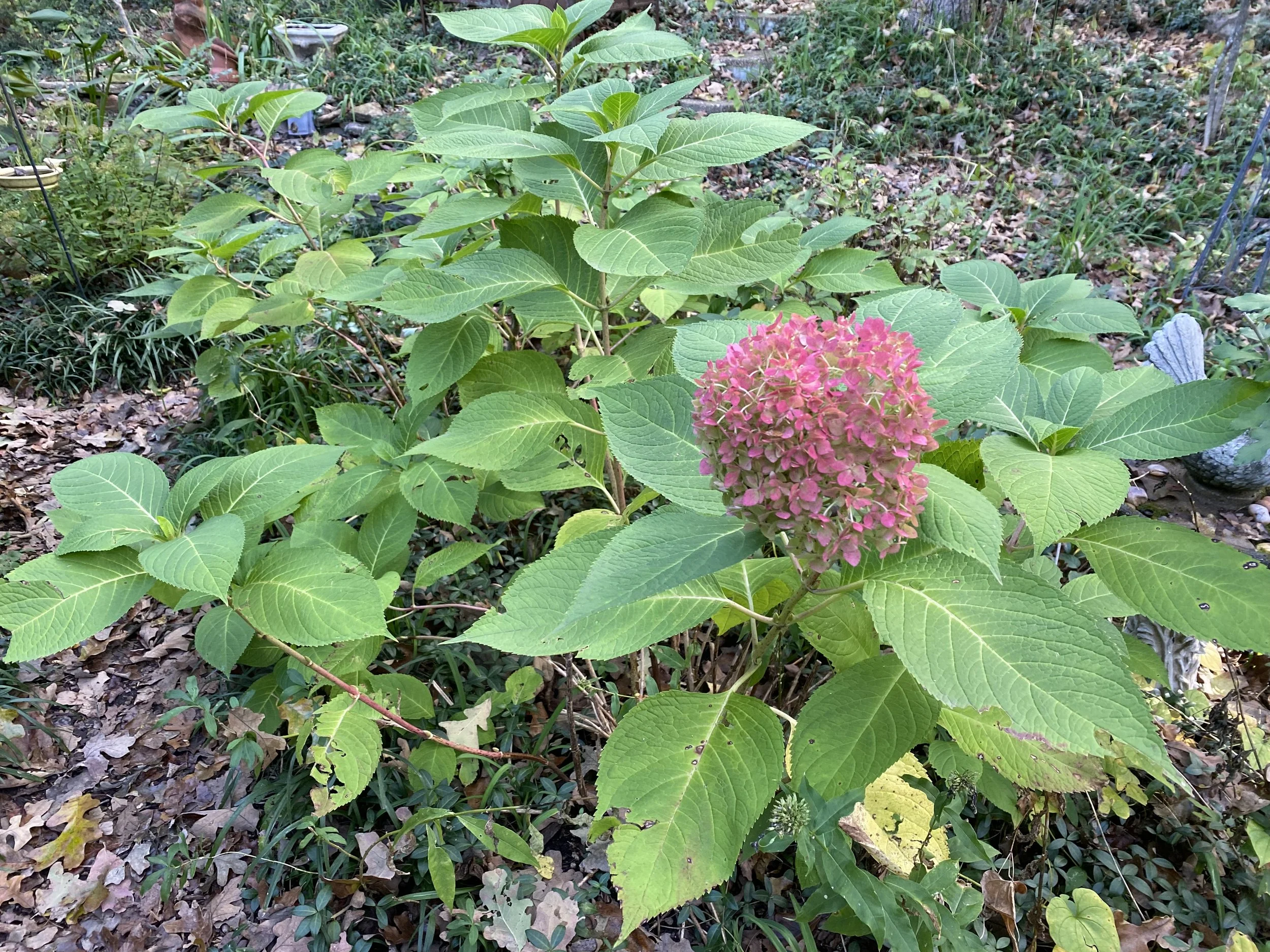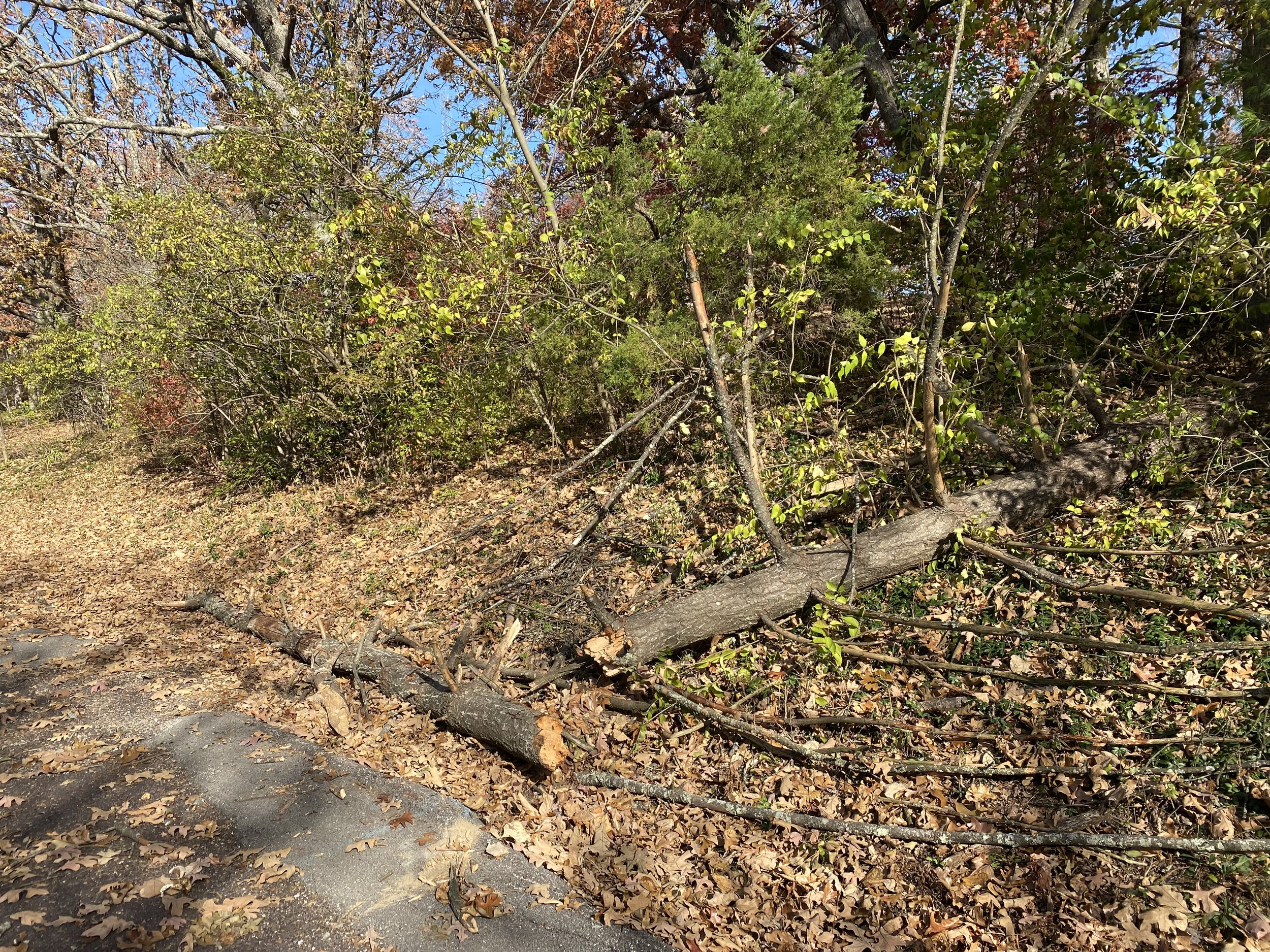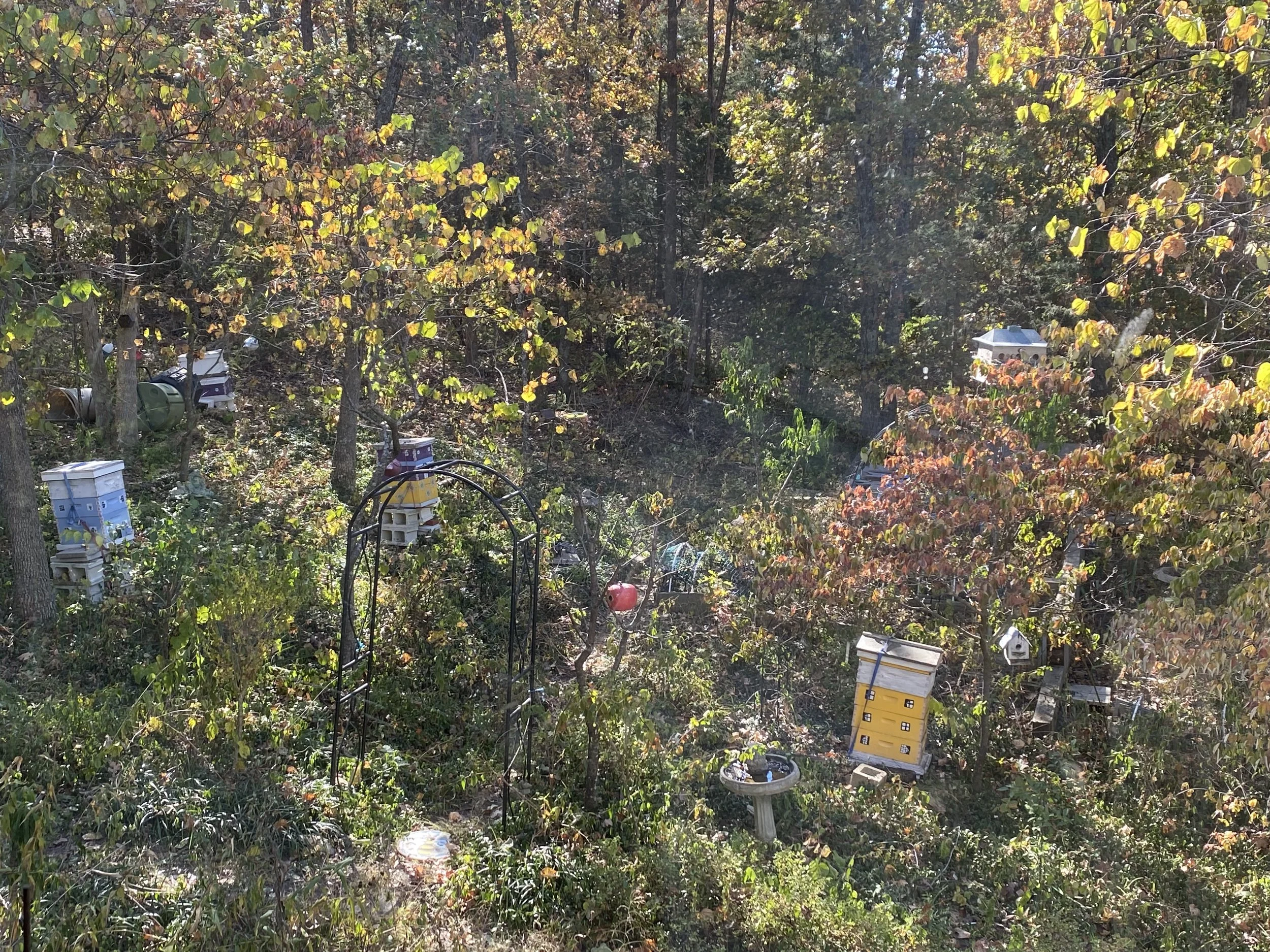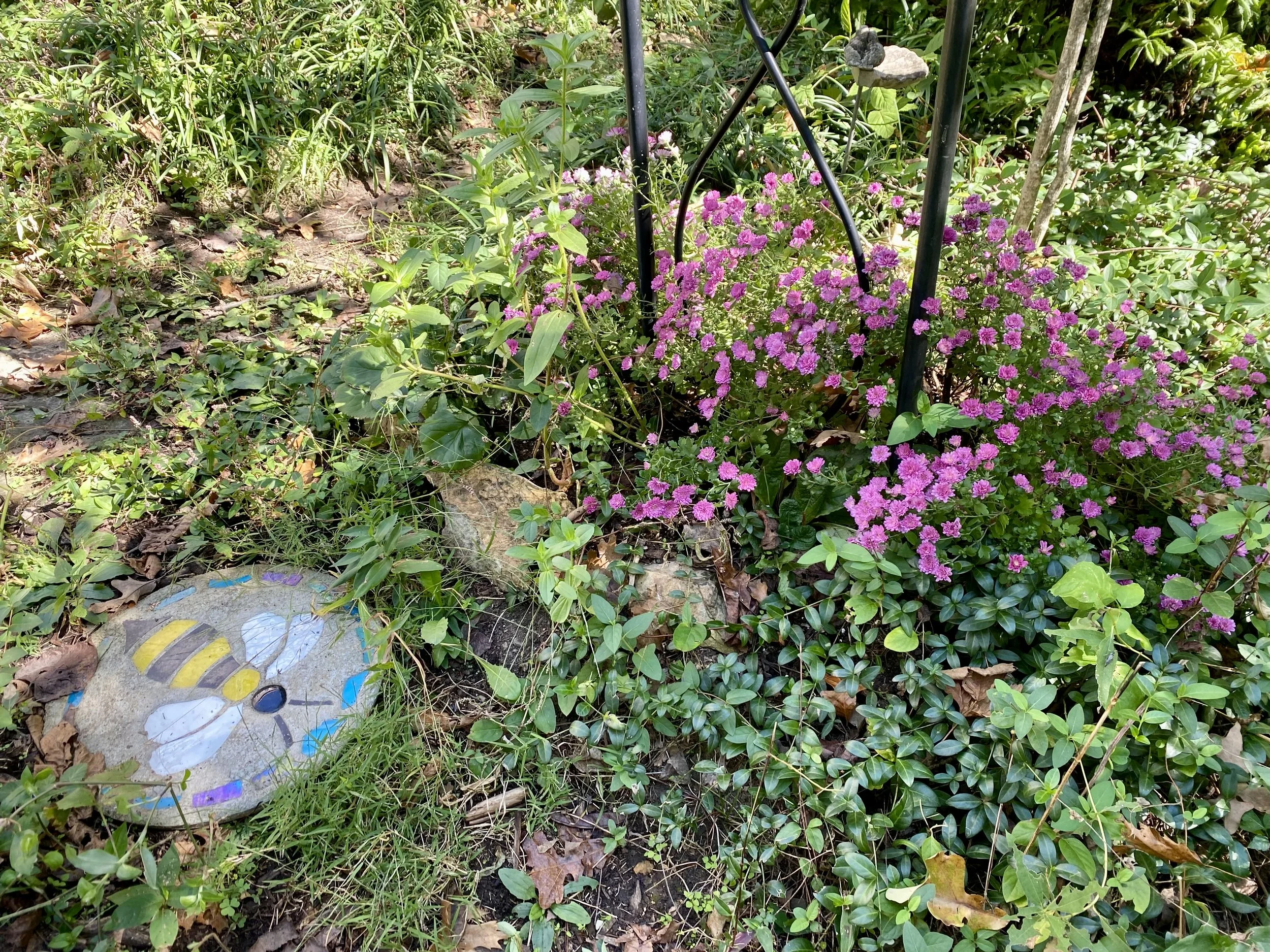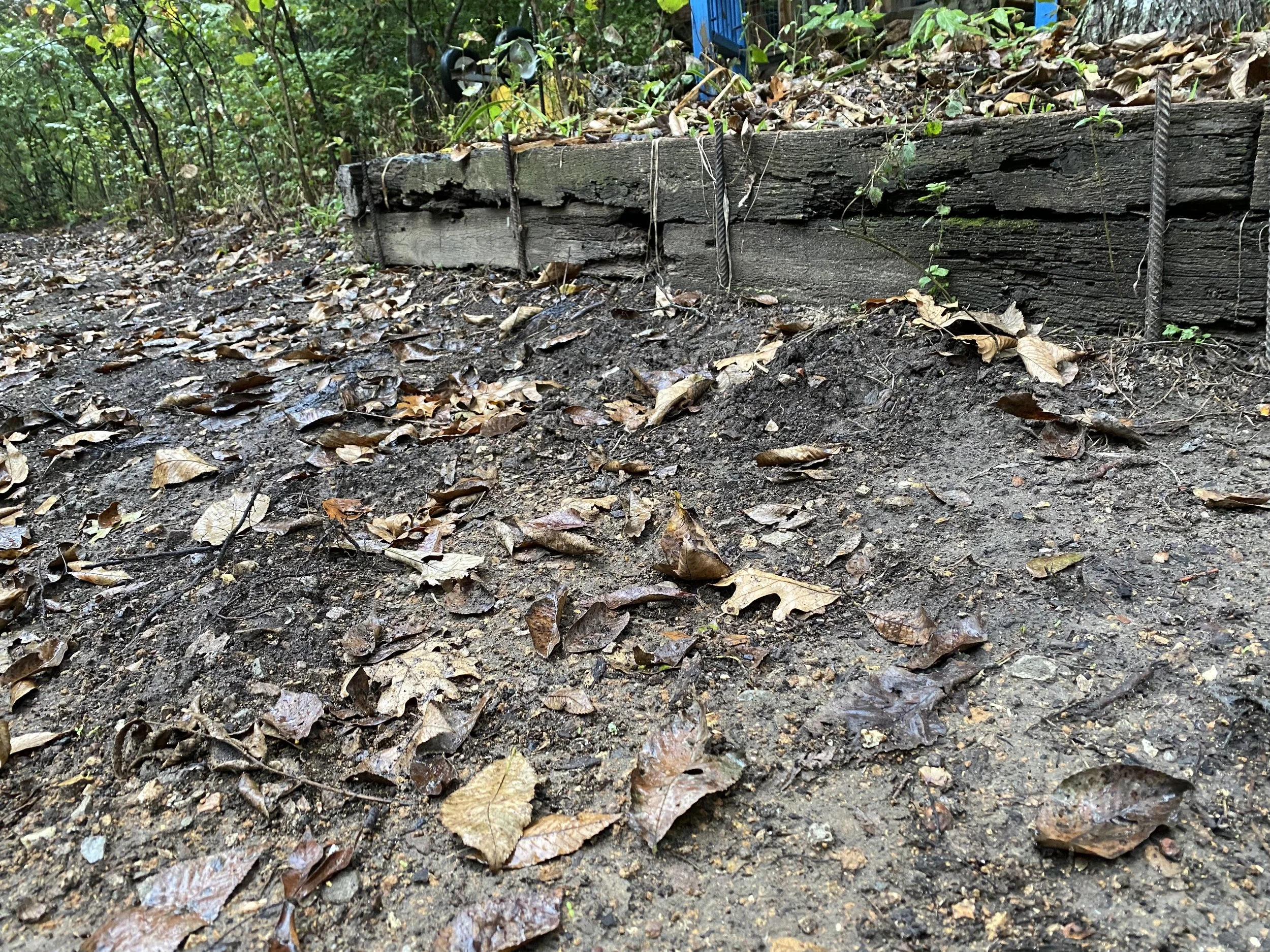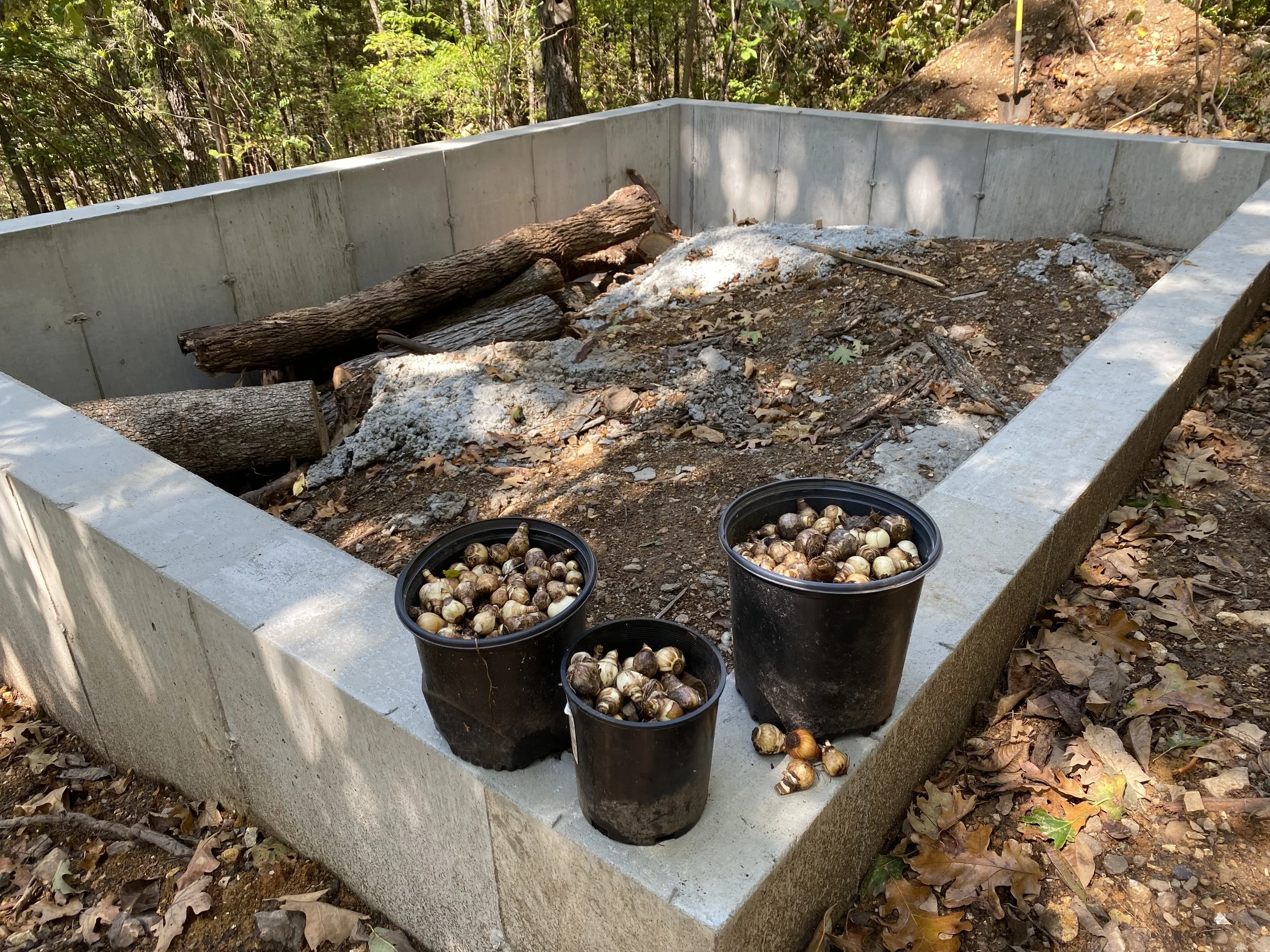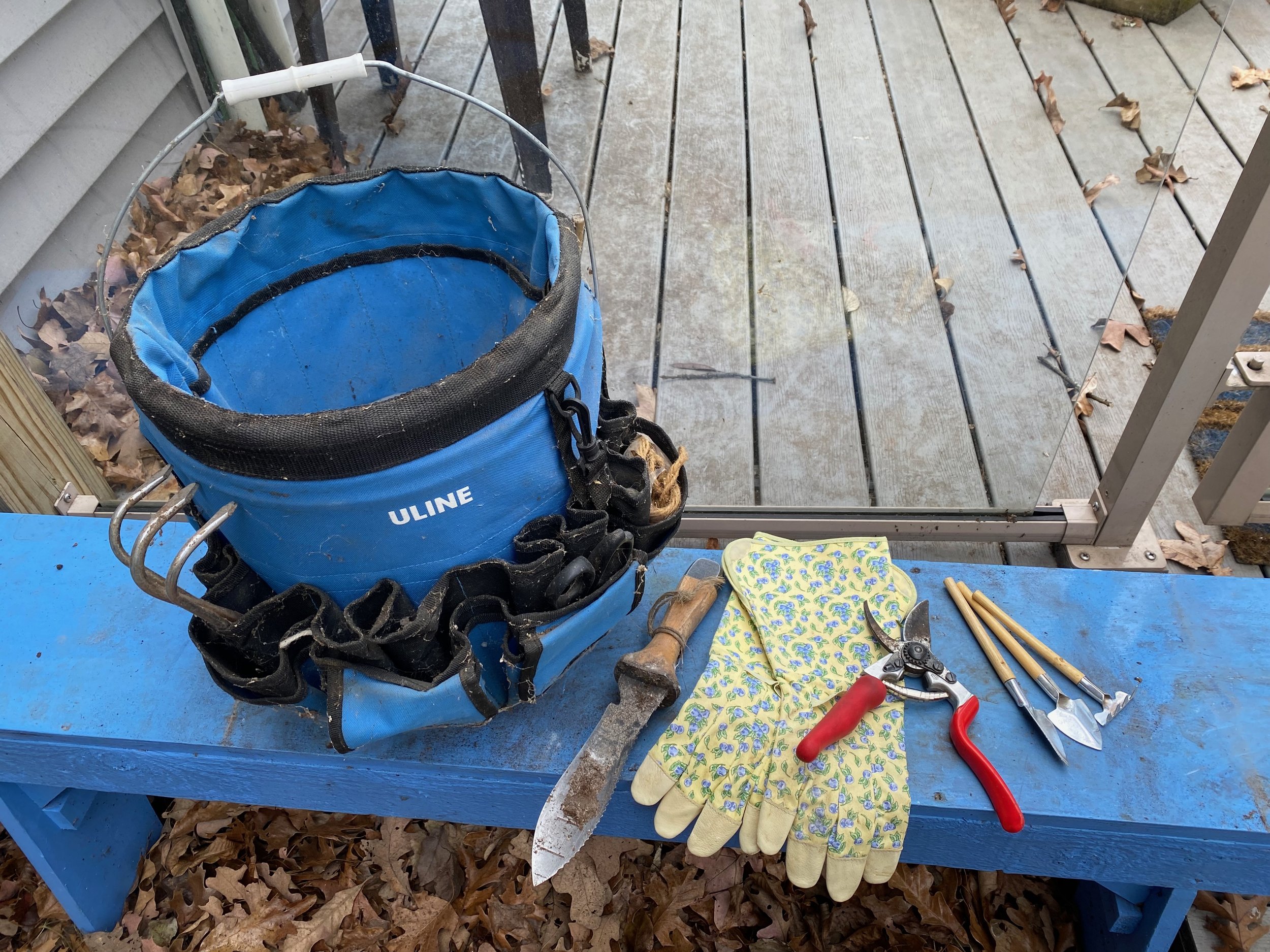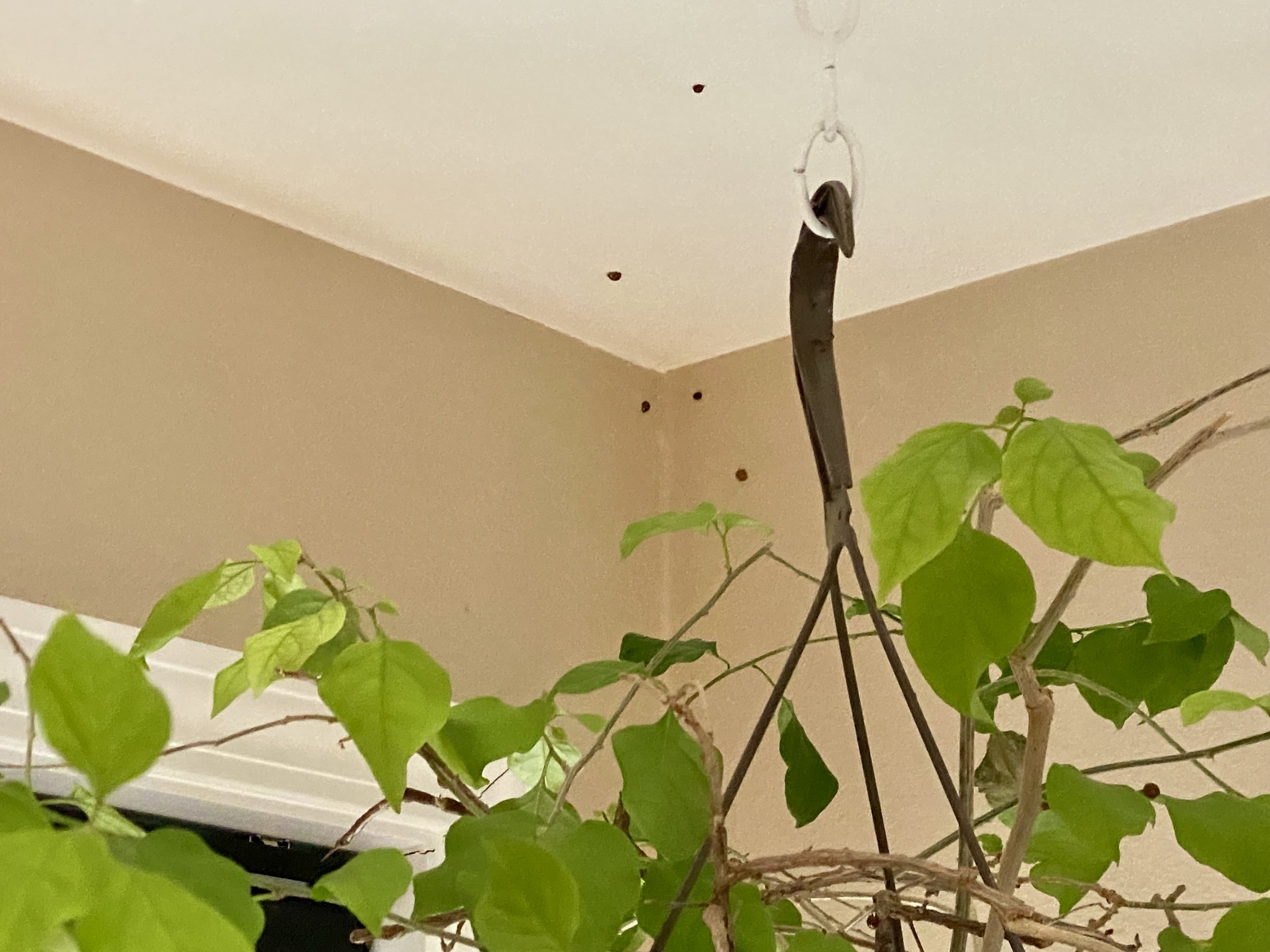Mulching v. Composting
/dry leaves can be both used in composting and in mulching. (charlotte ekker wiggins photos)
Composting v. Mulching: Pros and Cons
Late fall gardeners start to talk about composting, a term often confused with mulching. Both are excellent methods for managing organic materials in your garden, but they serve different purposes and have distinct advantages and disadvantages:
Composting Pros:
Nutrient-Rich Soil Amendment: Composting produces nutrient-rich soil known as humus, which improves soil structure, fertility, and moisture retention.
Reduces Waste: It helps divert organic waste from landfills, reducing methane emissions and contributing to environmental sustainability.
Versatile Use: Finished compost can be used as a soil amendment, potting mix, or mulch, providing nutrients for plants.
Improves Soil Health: Compost introduces beneficial microorganisms to the soil, promoting healthy plant growth and suppressing diseases.
Reduces Soil Erosion: Helps prevent erosion by improving soil structure and water retention.
Composting Cons:
Time-Consuming: Composting can take several months to a year to produce usable compost, depending on the method and materials used.
Requires Space: It may require space for compost bins or piles, which might not be feasible for individuals with limited outdoor space.
Requires Effort: Turning or maintaining the compost pile regularly requires effort and physical labor.
Odor Concerns: Improperly managed compost piles might emit odors, especially if not aerated correctly or if inappropriate materials are included.
Mulching Pros:
Conserves Moisture: Mulch helps retain soil moisture, reducing the need for frequent watering and conserving water.
Weed Suppression: It suppresses weed growth by blocking sunlight and inhibiting weed germination.
Regulates Soil Temperature: Mulch acts as an insulator, regulating soil temperature by keeping it cooler in summer and warmer in winter.
Soil Erosion Prevention: Helps prevent soil erosion by shielding the soil surface from heavy rain or wind.
Improves Soil Fertility: Over time, organic mulches decompose, adding nutrients to the soil.
Mulching Cons:
Temporary Solution: Mulch breaks down over time and needs periodic replenishment, requiring ongoing effort and cost.
May Attract Pests: Some organic mulches can attract pests like rodents or insects.
Improper Application: Incorrectly applied mulch (too thick or against plant stems) can lead to moisture-related issues or rot in plants.
Limitations on Types: Certain plants might not thrive with certain mulch types due to acidity, composition, or other factors.
While composting enriches soil, reduces waste, and promotes soil health, it requires time, space, and effort. Mulching, on the other hand, conserves moisture, suppresses weeds, and regulates soil temperature, but needs periodic renewal and proper application to avoid potential drawbacks.
When used appropriately, both practices can complement each other and offer valuable benefits. And they'll use up all of the dead leaves delivered by nature to your garden door!
For more tips on gardening, beekeeping, cooking and easy home decor, subscribe to my weekly Garden Notes.
Charlotte
